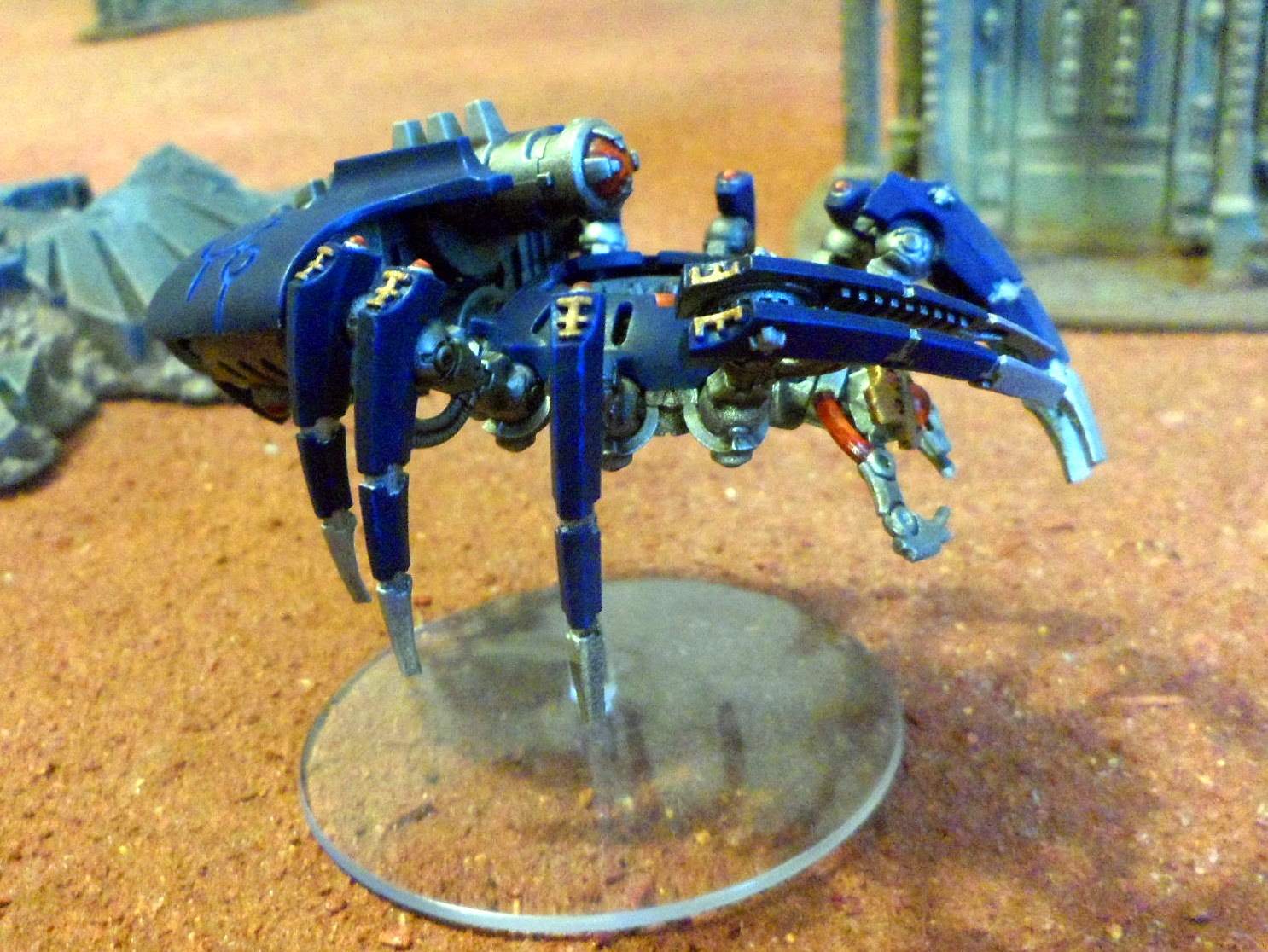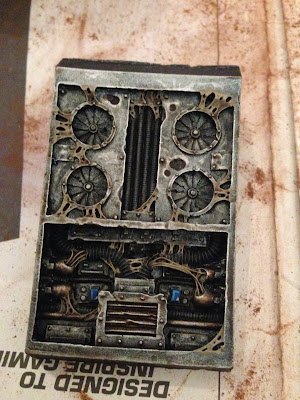Hi again – we’ve got to the point in the project where I
need to look at weapons; a relatively small area of the build that has
significant impacts whether this model will ever be used on a gaming board.
If you are anything like me, whenever a model is larger than
a Dreadnought and has multiple weapons options, I always debate whether to make
the weapons interchangeable.
The pro’s are obviously cost and flexibility, but the con’s are
the fact that making weapons modular can often be a difficult and sometimes
detrimental (to the aesthetics) process. I find that sticking to a single
component allows the model to be built in a much more dynamic way, whereas
magnets can lead to a more static (or even unnatural) pose.
For the Warhound, I think the decision is a pretty easy
choice to make though. The standard loadout is the titan-sized Bolter and
Plasma guns – which are probably alright in a standard game of 40K and relatively
un-cheesey (although you mention titan and suddenly everyone thinks they are
unbreakable – but that’s a rant for a different post…), but with the advent of
Knights and D-weapons/super-heavies becoming more prolific because of the
Escalation changes, I need to be prepared to pull out the Turbo Lasers and join
in with some D-weapon shooty when the need arises.
So down the build…I decided against magnets for the weapons
– they are just too heavy and being attached at one end, I could see them
easily spinning, drooping and falling off. I might be wrong – but it wasn’t a
path I wanted to go down. Instead I used bolts. Specifically these ones
(well…actually not those bolts because they ended up being too long – the ones
I ended up using were a bit shorter).
Unfortunately I can’t tell you what size they are, or where
I got them from – I found them in my toolbox and there were enough for both
Warhounds. They could potentially be from a furniture pack as the nuts are for
allen keys….if anyone is particularly interested I could measure them. The important thing is that they had a
relatively shallow profile on the head and the nut had a similar convex to the
weapon-mounts concave.
First things first – I drilled out the titan ‘arm’. I
started with a small drill bit to make sure I went (mostly) straight through
the arm. I then used a series of drill bits to open up the channel to the
thickness of the bolt. I then used larger drill bits on the weapon-end of the
arm to countersink the nut. This was messy so I’d recommend the normal resin
precautions.
The top of the shoulders have a small hole – which is key to
how the interchangeable weapons will work; I will be accessing the screw
through there – so the bolt needs to be free to move in the arm.
I placed the
arm in the shoulder (with the bolt in) and made sure there was a mm or two gap
so that the bolt could spin freely. Then I attached the arm to the shoulder
using three pins – going through the shoulder into the arm at angles, being
careful not to damage the bolt when drilling the holes or using too much glue
on the pins (and gluing up the bolt).
The nut was then placed in the weapon and I tested that the
bolt still lined up correctly. I then glued the nut into the weapon in its final
position (the glue is only to hold it there temporarily – I wouldn’t expect it
to be strong enough for a permanent fix).
When the glue had set, one last check
that the bolt lined up and then I fixed the nut in place permanently by packing
greenstuff around it – being careful not to get any in the threads, or too
high. Once the greenstuff had cured I tested again and in this case I am happy
that the nut wont be going anywhere – although if I wasn’t, I would place some
small pins through the greenstuff and into the weapon to secure it.
Last thing; there are some covers for the top of the
shoulders – I popped a small magnet on the underside so that it stuck to the
bolt, but made it easy to access if I needed to (no pics of this yet…). And
there you have it – completely interchangeable weapons and all I need to do if
I get new ones, is fix a nut as above.


















































